Kanyakumari Wildlife Sanctuary is a beautiful tourist spot in the southernmost part of India. Located amid the dense green vegetation region of the Western Ghats, this sanctuary gives rich exposure to wildlife. The sanctuary covers an area of more than 800 square kilometres. The wildlife comprises elephants, deer, and many types of birds. Suppose you love nature and wildlife or are just genuinely adventurous. In that case, the Kanyakumari Wildlife Sanctuary is the perfect place for you, serving as an ideal getaway away from the busy city life.
Location
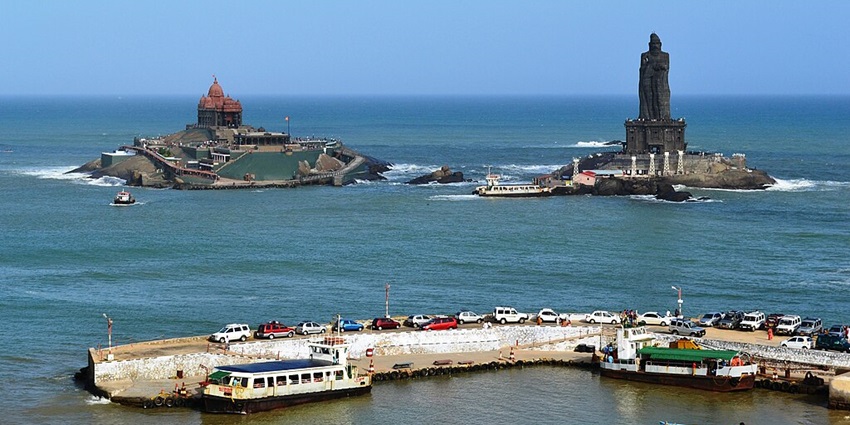
Photo: Ravivg5 / Wikimedia Commons
Kanyakumari Wildlife Sanctuary is in the Kanyakumari district of Tamil Nadu state in India. It is situated in the southernmost part of Kanyakumari. It is famous for its eye-popping sea shores and mesmerising sunsets. The sanctuary is next to the well-known western ghats that form part of the UNESCO World Heritage Site. The place presents stunning vistas of the hills and valleys. The area is very close to the sea and the mountains and is densely populated with wildlife.
Suggested Read: Places To Visit In Mettupalayam
How To Reach
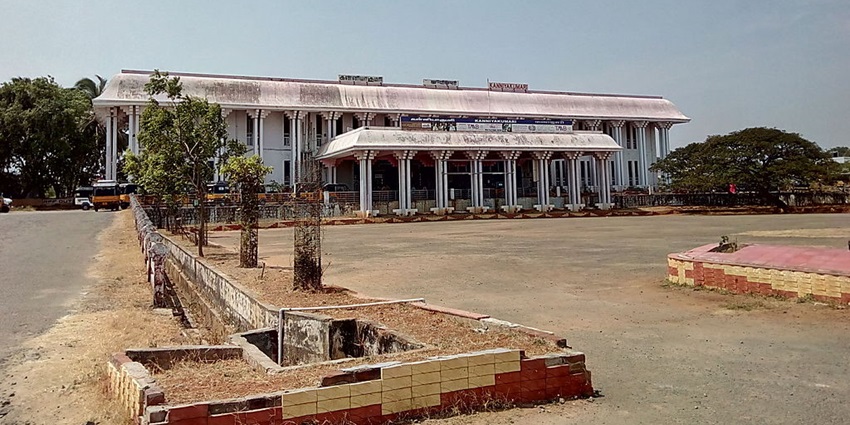
Photo: Akhilan / Wikimedia Commons
Here is how you can reach the Kanyakumari wildlife sanctuary via various means:
By Road: Kanyakumari is well-connected by road, with regular bus services from major cities like Trivandrum and Madurai. You can also hire a taxi or drive from nearby locations. The scenic route offers a beautiful view of the countryside and is an enjoyable experience for travellers.
By Rail: The nearest railway station is Kanyakumari Railway Station, which is about 15 kilometres from the sanctuary. It is well-connected to major cities, making train travel a convenient option. The railway station is also close to many local attractions, making it easier to explore the area.
By Air: About 100 kilometres away, Trivandrum International Airport is the closest airport. To get to the refuge from the airport, you can take a bus or hire a cab. The journey from the airport to the sanctuary is picturesque, with thick green landscapes and coastal views along the way.
Places To Visit In And Around Kanyakumari Wildlife Sanctuary
Here is a list of the top five places you can visit in and around Kanyakumari Wildlife Sanctuary to make your trip memorable:
1. Kanyakumari Beach
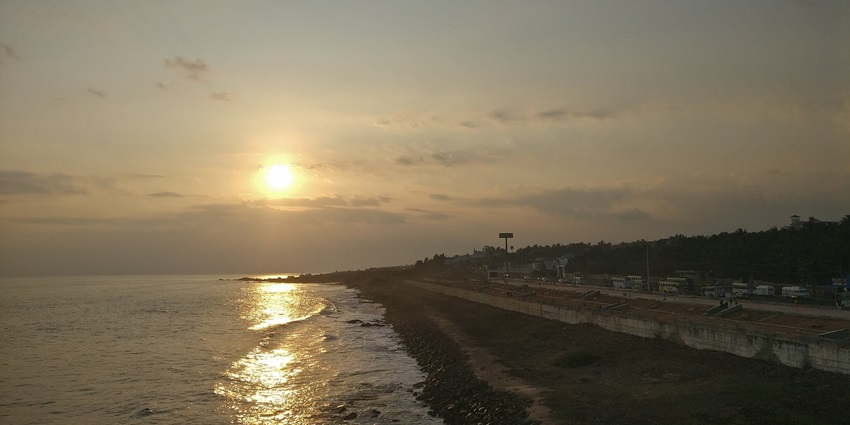
Photo: Mujeebcpy / Wikimedia Commons
Kanyakumari Beach is an excellent area of interest for visitors and the town’s inhabitants. It offers marvellous views of the rising and setting sun. It is an important tourist destination, offering facilities for swimming and playing volleyball. The beach is famous for witnessing the meeting of three seas, the Arabian Sea, the Indian Ocean, and the Bay of Bengal . The view and sunsets are fascinating and beautiful. Spend some time in the evening walking barefoot along the sandy beach and feel the cool sea breeze as the waves glide over the beach.
Timings: Open all day
Entry Fees: Free
Suggested Read: New Year Parties In Chennai
2. Vivekananda Rock Memorial
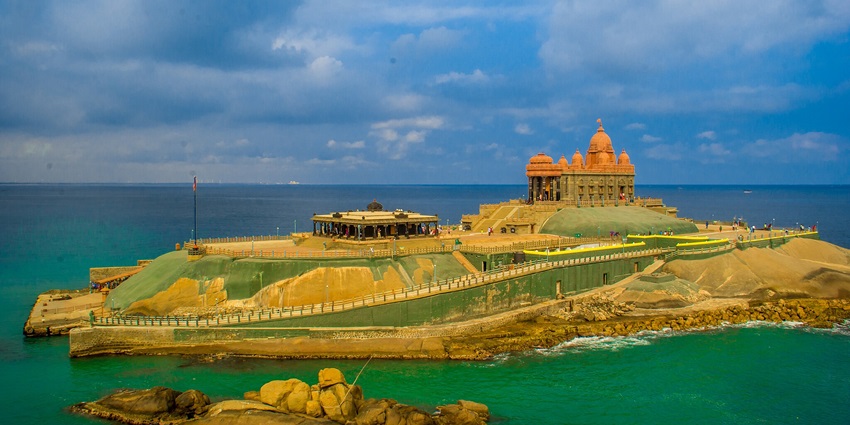
Photo: ShankarVincent / Wikimedia Commons
The Vivekananda Rock Memorial is one of the significant monuments. It is constructed in honour of the great spiritual leader, Swami Vivekananda. The place is situated on a small island that can be reached only by ferry service. The memorial is a significant spiritual site with two main structures: the meditation hall and the Vivekananda statue. People can appreciate unique design and discover more about Vivekananda and his ideas. The boat ride to the island adds to the experience, offering scenic seascapes and coastal views.
Timings: 7 AM – 5 PM
Entry Fees: ₹30 per person
3. Thiruvalluvar Statue
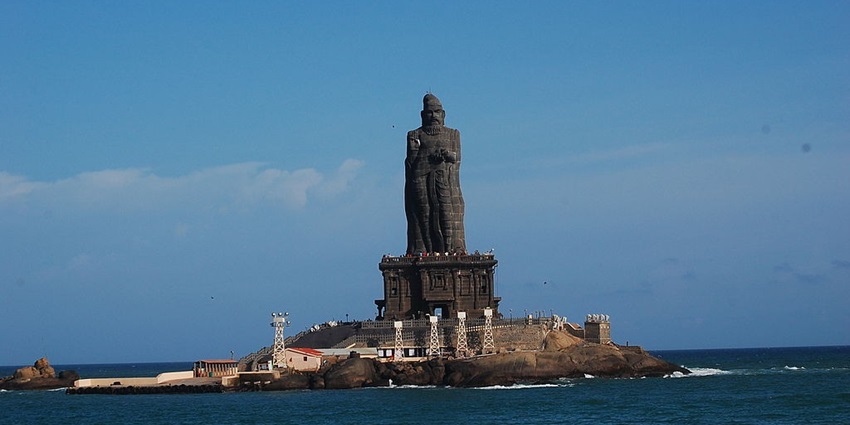
Photo: Karthikk84 / Wikimedia Commons
The Thiruvalluvar Statue is an extraordinary marvel. It is installed near the Vivekananda Rock. This statue represents the Tamil poet and philosopher Thiruvalluvar. The statue towers 133 feet in height and pays tribute to the literary and cultural history of Tamil Nadu. This colossal statue is made of granite, and the artwork on the sculpture depicts the artistic value of Thiruvalluwar’s work. Silhouettes of the statue can be viewed from up close, and visitors can go to the top to get a bird’s eye view of the sea and the coastal region.
Timings: 7 AM – 5 PM
Entry Fees: Free
Suggested Read: Adventure Sports In Chennai
4. Padmanabhapuram Palace
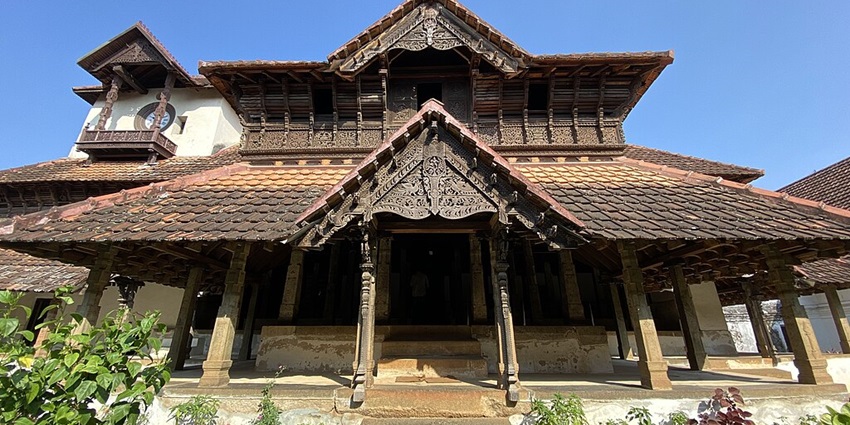
Photo: Shekbhi1 / Wikimedia Commons
Padmanabhapuram Palace is an ancient palace in the traditional Kerala house style. Everything in the palace is decorated with refined carvings, antique items, and paintings depicting the place’s history. This was part of the royal family of Travancore and is now a monument protected by the archaeological department. Visitors can explore each hall or room, with each space showcasing its own unique story about the kings. The palace’s environment is calm and peaceful, and the palace’s beauty is worth the trip.
Timings: 9 AM – 5 PM
Entry Fees: ₹50 per person
5. Cape Comorin
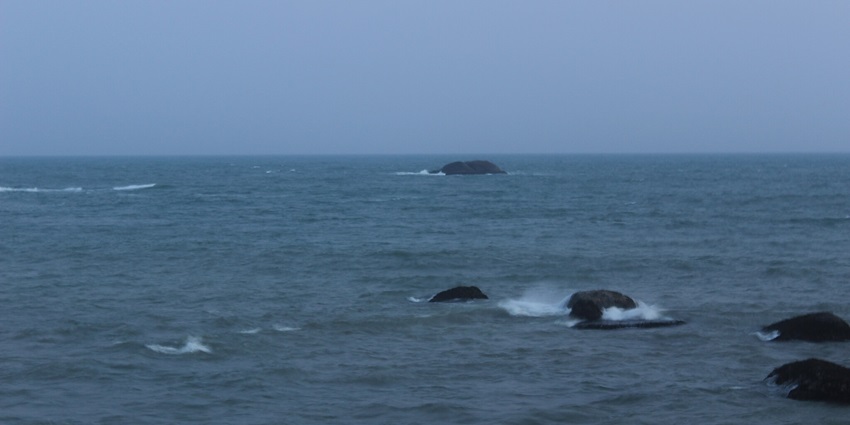
Photo: Aamir Khan / Wikimedia Commons
Cape Comorin is at the southern tip of Mainland India. Tourists enjoy geographical features and the union of three seas, which include the Arabian Sea, the Indian Ocean, and The Bay of Bengal. It has become a great point of attraction for visitors with a camera for sightseeing, photo shooting, and enjoying the splendid view of the coastal belt. Surrounding the Cape of Comorin is a plurality of flora and fauna. This site has been an important tourist attraction because it blends cultural and natural sites.
Timings: Open all day
Entry Fees: Free
Suggested Read: Point Calimere Wildlife Sanctuary
Where To Stay

Photo: Quang Nguyen Vinh / Pexels / Image For Representation Only
Kanyakumari Wildlife Sanctuary has many lodging facilities, including cheap hotels and expensive resorts. Some of them include government guesthouses, beach resorts, private hotels, making it comfortable for everyone. Many accommodations are near the sanctuary and are easily accessible from major attractions in the area, too. It is recommended to make a reservation in advance to receive the desired accommodation during the high season.
Where To Eat

Photo: Guilhem Vellut / Wikimedia Commons
The lovely destinations in Kanyakumari have several local restaurants which serve regional speciality South Indian food. Lovers of seafood enjoy fresh seafood from available local restaurants near beach areas. Some of the famous foods include dosas, idlis, and fish curry. Many restaurants offer a variety of tastes, including vegetarian options. The local dishes are delicious and provide an authentic taste of Tamil Nadu’s cuisine.
Suggested Read: Ousteri Wetland And National Park
Other Factors To Consider
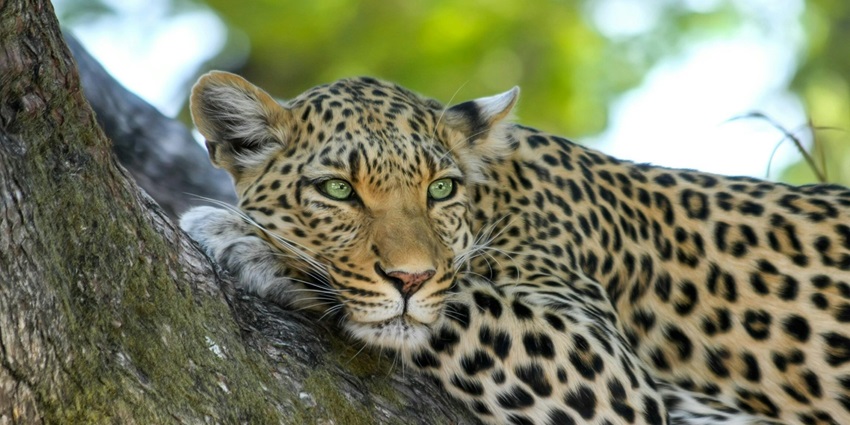
Photo: Pixabay / Pexels / Image For Representation Only
The best time to visit Kanyakumari Wildlife Sanctuary is between October and March. During this period, the weather is pleasant and suitable for wildlife exploration and outdoor activities. Kanyakumari Wildlife Sanctuary timings are from 6 AM to 6 PM.
Average Cost Of The Trip:
Expect to spend around ₹3000-5000 per person for a weekend trip, including travel, food, and accommodation. A trip cost to Kanyakumari Wildlife Sanctuary may vary based on travel preferences and activities planned. Kanyakumari Wildlife Sanctuary entry fee is ₹50 for Indians and ₹300 for foreigners.
Tips For Travellers:
- Wear comfortable shoes to explore the sanctuary and nearby attractions.
- Carry water and snacks while hiking to stay energised.
- Keep a safe distance from wildlife and show them respect by not feeding them.
- Follow park rules and regulations for a safe and enjoyable experience.
- For lower temperatures and the best chances of seeing wildlife, go early in the morning.
Kanyakumari Wildlife Sanctuary is a captivating destination that showcases the beauty of nature and wildlife. It offers a perfect escape for those seeking adventure or peace. With its diverse ecosystems, breathtaking landscapes, and cultural heritage, this sanctuary is a must-visit. Plan your next trip with TripXL and explore the wonders of Kanyakumari Wildlife Sanctuary for an unforgettable experience amidst nature!
Cover Photo: Ms Sarah Welch / Wikimedia Commons / Image For Representation Only


 WhatsApp
WhatsApp
 Twitter
Twitter









